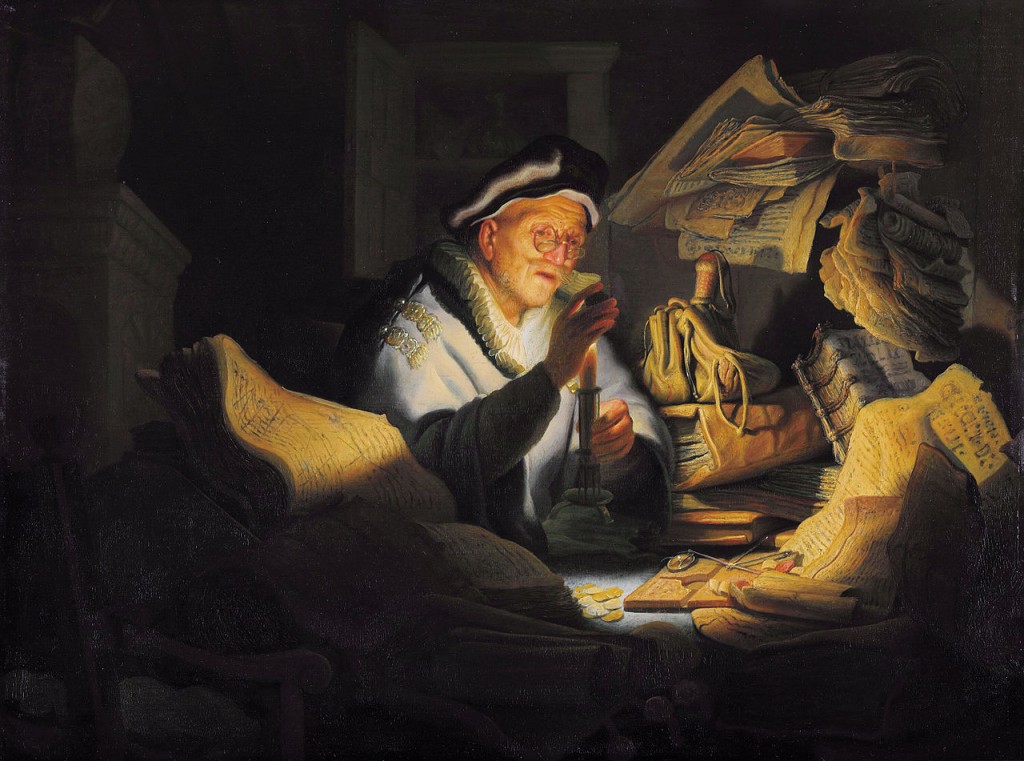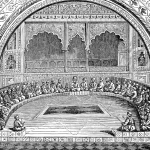In his sermon at mass at the Vatican guesthouse where he resides, on May 19, Pope Francis minced no words in his harsh critique of employers who hire on part-time contracts in order to avoid providing health benefits or retirement.
“Those who do that are true leeches, and they live by spilling the blood of the people who they make slaves of labor,” he said, and went on to state that to “those who use people for work without justice” are “living on the blood of the people.” He even went so far as to call this “mortal sin.”
This may sound extreme to some, but the pope is speaking in continuity of a Christian tradition of moral theology on money and work. We often like like to reconstruct an image of the historical Jesus as kind, gentle, and unjudgmental, but his rhetoric directed at those wealthy who refused to care for the poor was often about hellfire and damnation. While repeatedly, throughout history, lust for wealth and power has driven humans to clever interpretations and evasions, even in the name of God, Christianity as such has always been intimately connected with a preferential option for the poor. It is affirmed in the church fathers, who, while affirming the right to private property within certain parameters, also warned against the peril of riches, and advocated for the needs of the poor as a primary obligation.
Pope Francis sounds a lot like these guys:
You are not making a gift of your possession to the poor person. You are handing over to him what is his.
St. Ambrose
The property of the wealthy holds them in chains . . . which shackle their courage and choke their faith and hamper their judgment and throttle their souls. They think of themselves as owners, whereas it is they rather who are owned: enslaved as they are to their own property, they are not the masters of their money but its slaves.
St. Cyprian
The bread in your cupboard belongs to the hungry man; the coat hanging in your closet belongs to the man who needs it; the shoes rotting in your closet belong to the man who has no shoes; the money which you put into the bank belongs to the poor. You do wrong to everyone you could help but fail to help.
St. Basil
Not to enable the poor to share in our goods is to steal from them and deprive them of life. The goods we possess are not ours but theirs.
St. John Chrysostom
Of course, those who keep alive this tradition have often faced opposition from those who enjoy using religion for their own aggrandizement. St. Francis faced tremendous opposition when initiating his order, and in the generations that followed the “Spiritual Franciscans” who taught the poverty of Christ were not only opposed, but actively threatened by papal powers. This may be one reason why Dante, who had no use for the appropriation of earthly powers by church figures, and who damned usurers to a hell far worse than that where mere adulterers swirled, was eventually drawn to the Franciscan order. Elias Crim writes about this Christian view of usury in “Bankers in Hell”:
“The Thomistic critique of usury, from which Dante borrowed, includes three scholastic arguments which center on the themes of 1) the nature and purpose of money, 2) the relation between labor and a just recompense, and 3) the medieval vision of society as an harmonious whole. Dante’s ire is grounded in all three approaches to the practice.”
So, Pope Francis is speaking like a traditionalist, not like some crazy liberal here.
Actually, liberalism strictly speaking is all about free market individualism, bootstrap economies, and narratives of innovation and success. Those who call themselves conservative Christians, especially those who adopt the ludicrous “prosperity gospel” are actually old liberals in new, shiny disguises. The pope is in line with an older, Medieval, Dantesque tradition, a tradition we might do well to recover, especially as our contemporary American Christianity enjoys fixating on sexual sins (with a special emphasis on female sexuality) while giving the wealthy a pass – or, even, contrary to the gospels, a special place at the banquet. Convenient, isn’t it? The language of mortal sin is strong indeed, when speaking of any wrongdoing in general, because typically a sin can not be said to be mortal unless the matter is grave, and the perpetrator has both full knowledge and full consent. Perhaps the pope is simply being hyperbolic, calling attention to the gravity of the sin of those who profit through the labor stolen from others. Or perhaps he is implying that those who do this know perfectly well what they are up to, and are opting to do it anyway.
Not being a wealthy employer myself, but subsisting barely over the poverty line, I am inclined to rub my hands with glee over this denunciation, but I must check myself. While I would never dream of hiring anyone on my little farm unless I could pay them a just wage, how often do I profit from industries that rely on unjust wages and slave labor? I am complicit in this system, too, and perhaps all of us who enjoy any comfort and safety in the developed world need to ask ourselves how we can make a difference in creating a climate of economic justice.
But if we take Pope Francis seriously, the fact that I am complicit too doesn’t let the wealthy off the hook.
Read more about the pope’s homily here.
Image credit: Parable of the Rich Fool, Rembrandt. PD-US. This work is in the public domain in its country of origin and other countries and areas where the copyright term is the author’s life plus 100 years or less.
https://en.wikipedia.org/wiki/Parable_of_the_Rich_Fool.

















